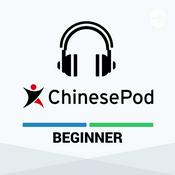195 episodes
- Plantar fasciitis is a common cause of heel pain, accounting for up to 15% of foot complaints requiring professional care and affecting both athletic and sedentary populations. It is best understood as a mechanically driven, degenerative condition resulting from repetitive loading that exceeds the plantar fascia’s capacity for repair, rather than a purely inflammatory process. Key risk factors include abnormal foot biomechanics, limited ankle dorsiflexion, posterior chain tightness, obesity and prolonged weight-bearing. In this episode, Dr Roger Henderson looks at the epidemiology and pathophysiology of plantar fasciitis, reviews key clinical features and examination findings, discusses differential diagnoses and appropriate investigations, and outlines evidence-based management strategies, with a focus on practical guidance for primary-care clinicians.
Access episode show notes containing key references and take-home points at:
https://gpnotebook.com/en-GB/podcasts/musculoskeletal-medicine/ep-194-plantar-fasciitis.
Did you know? With GPnotebook Pro, you can earn CPD credits by tracking the podcast episodes you listen to. Learn more. - Barrett’s oesophagus sits at the crossroads of gastroesophageal reflux disease and oesophageal cancer, making it a condition every clinician should understand. Although most patients with Barrett’s will never develop malignancy, it remains the only identifiable precursor to oesophageal adenocarcinoma, a cancer with rising incidence and high mortality. In this episode, Dr Roger Henderson looks at how chronic reflux reshapes the oesophageal lining, who is at greatest risk and how modern surveillance and endoscopic therapies have transformed management. He also discusses evolving guidelines, emerging technologies and practical implications for everyday clinical practice.
Access episode show notes containing key references and take-home points at:
https://gpnotebook.com/en-GB/podcasts/gastroenterology/ep-193-barretts-oesophagus.
Did you know? With GPnotebook Pro, you can earn CPD credits by tracking the podcast episodes you listen to. Learn more. - In this episode, Dr Roger Henderson looks at adhesive capsulitis, commonly known as a frozen shoulder, reviewing its epidemiology, risk factors and underlying pathophysiology, as well as typical clinical presentations, disease staging and key examination findings that aid diagnosis in primary care. Diagnostic challenges, differential diagnoses and the role of imaging and injections are covered, alongside management strategies, prognosis and indications for surgical intervention, with particular attention to patients with diabetes and endocrine disorders who experience more severe and prolonged disease.
Access episode show notes containing key references and take-home points at:
https://gpnotebook.com/en-GB/podcasts/musculoskeletal-medicine/ep-192-adhesive-capsulitis.
Did you know? With GPnotebook Pro, you can earn CPD credits by tracking the podcast episodes you listen to. Learn more. - Intertrigo is an inflammatory condition of opposing skin surfaces, driven by friction, heat and moisture that weaken the skin barrier and invite secondary infections, especially Candida and bacteria. It affects all ages, from infants with diaper dermatitis to older adults with limited mobility. It is more common in hot climates and in patients with obesity or diabetes. Clinically, it presents with symmetrical erythema that may progress to maceration, fissures, discharge and secondary infection. The diagnosis is mainly clinical, with cultures or potassium hydroxide testing when needed. Management focuses on reducing moisture and friction, treating infections and using gentle barrier protection. In this episode, Dr Roger Henderson looks at how to identify and manage this condition, which is commonly seen in primary care.
Access episode show notes containing key references and take-home points at:
https://gpnotebook.com/en-GB/podcasts/dermatology/ep-191-intertrigo.
Did you know? With GPnotebook Pro, you can earn CPD credits by tracking the podcast episodes you listen to. Learn more. - Chondromalacia patella (CMP), sometimes called “runner’s knee”, is a degenerative condition involving softening and breakdown of the patellar articular cartilage, most often due to abnormal patellofemoral mechanics, muscular imbalance or repetitive micro-trauma. It commonly presents with anterior knee pain worsened by stair descent, squatting, running or prolonged sitting. Diagnosis relies on clinical evaluation supported by imaging (especially magnetic resonance imaging) to assess cartilage integrity and patellar alignment. Most patients improve with long-term conservative therapy focused on quadriceps strengthening, hip stabilisation and activity modification. Surgical intervention is reserved for persistent, symptomatic cases or significant maltracking. Early recognition helps prevent progression to patellofemoral osteoarthritis. In this episode, Dr Roger Henderson looks at how best to recognise the condition in our surgeries and the best plan of action for our patients.
Access episode show notes containing key references and take-home points at:
https://gpnotebook.com/en-GB/podcasts/musculoskeletal-medicine/ep-190-chondromalacia-patella.
Did you know? With GPnotebook Pro, you can earn CPD credits by tracking the podcast episodes you listen to. Learn more.
More Education podcasts
Trending Education podcasts
About GPnotebook Podcast
A bite-sized, regular chat for all healthcare professionals working in primary care. Episodes cover clinical tips and hot topics. New episodes published every Thursday or Friday.
Podcast websiteListen to GPnotebook Podcast, Coffee Break Spanish and many other podcasts from around the world with the radio.net app

Get the free radio.net app
- Stations and podcasts to bookmark
- Stream via Wi-Fi or Bluetooth
- Supports Carplay & Android Auto
- Many other app features
Get the free radio.net app
- Stations and podcasts to bookmark
- Stream via Wi-Fi or Bluetooth
- Supports Carplay & Android Auto
- Many other app features


GPnotebook Podcast
Scan code,
download the app,
start listening.
download the app,
start listening.








































